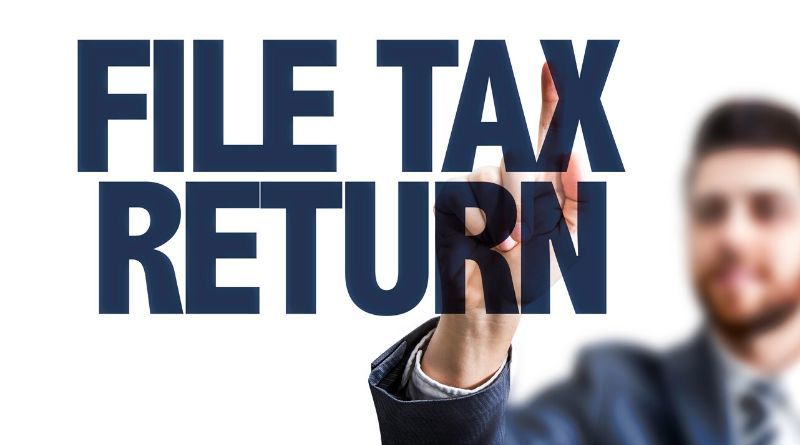HMRC targeting tax on overseas financial activities
HMRC targeting tax on overseas financial activities
No Safe Havens 2019 is a government strategy bringing
together all of HMRC’s rules and powers regarding offshore tax avoidance and
non-compliance.
HMRC has been cracking down on offshore tax avoidance
since 2010, and has so far introduced more than 100 directives such as the
Requirement to Correct legislation brought in in September 2018. This crackdown
has so far raised over £2.9bn, bringing the UK tax gap to a near record low
this year. Until now, HMRC has been focusing on multinational corporations and
businesses, bringing in more than £8bn from major businesses in 2016-17 alone.
But now the scope of their investigations are expanding to encompass individual
tax payers.
In 2018, HMRC received information about the offshore
accounts and assets of more than 3 million individual UK residents, and are
currently working through this data in order to assess for potential
non-compliance.
The objectives of this new, adapted operation, as
outlined in the 2019 document are:
- To maximise revenues and crack down on avoidance and evasion
- To transform tax and payments for customers
- To design and deliver a professional, efficient and engaged organisation
And this focuses on three areas:
- Leading internationally
- Assisting compliance
- Responding appropriately
One of the greatest struggles faced when tackling tax
non-compliance was that, in the past, some of the more secretive financial
jurisdictions refused to share their information with HMRC. In 2013 the G8,
whilst under the UK’s presidency, called for a new global standard in automatic
financial information transfer. This was accepted and taken up by both the G20
and the OECD, leading to the formation of the Common Reporting Standard (CRS).
The CRS defines:
- The information that is required to report
- The types of institutions that are required to report
- The procedures that financial institutions should follow
- The people that are affected by this legislation
More than 100 jurisdictions have committed to the CRS, including
all of the countries within the EU, China, India, Hong Kong and Russia.
As well as this, the UK is also a member of the Joint
International Task force on Shared Intelligence and Collaboration (JITSIC), an
international network of 40 different jurisdictions, and the Joint Chiefs of
Global Tax Enforcement (referred to as ‘J5’). These memberships are
complimented by HMRC’s ongoing relationship with the police, Border Force and
other UK government law enforcement agencies, as well as financial authorities.
Finally, the UK has committed to investing up to £18.25
million in funding for supporting developing countries who want to improve
their taxation infrastructure. This will help them to implement an
international reporting model which is globally accepted, making financial
information transfer easier between cooperating taxation agencies.
HMRC states that it understands that many individuals who
are found to be non-tax compliant actually do want to pay the right amount of
tax, and in these cases they want to provide help.
Systems such as the Making Tax Digital programme have
been designed to help tax payers get income reporting right, and HMRC has
already invested over £1.3bn in this initiative, working with financial
authorities and agents to help promote it and others like it. This, they
believe, will help that those who are confused to find the help that they need
and understand their obligations better.
Research is being constantly undertaken, currently
focusing around a core of 5 different groups based on size, behaviour, risk and
complexity. Through breaking taxpayers into groups in this way, HMRC think they
will be better able to spot the signs that indicate non-compliance, and provide
solutions to the individual concerned.
The new data being collected by HMRC is currently being
analysed and individuals are constantly being contacted in order to refine the
processes behind this initiative. To begin with, taxpayers are likely to be
asked to check their finances and tax returns and confirm that everything that
they have submitted so far is correct to the best of their knowledge. If there
is no response or there is still found to be a miscalculation, then an
investigation may be carried out, and penalties applied if deliberate
non-compliance is found. In severe cases, HMRC will conduct criminal
investigations and may even pursue criminal prosecution.
HMRC is currently investigating those who they feel may
have made a mistake when reporting their tax, using information garnered from
the Requirement to Correct initiative amongst others.
Whilst tax non-compliance is considered a serious issue,
and can result in severe penalties, HMRC state that they understand that
mistakes can happen. Tax payers have a duty of care over their own taxes, and
must make sure that they make full disclosure of their financial affairs. If
there has been a mistake on someone’s tax return, but HMRC deems that this is a
simple error in an otherwise carefully submitted return, there policy will be
to levy no penalty and just require the correct tax be paid. Reasonable
mistakes are taken into account for every return, but mistakes will vary
depending on the individual, so a reasonable mistake for one taxpayer may be
considered more or less serious for another.
For those who are deemed not to have taken reasonable
care over their tax return (i.e. if it is full of mistakes or appears that
miscalculations are deliberate in order to avoid tax) then they can expect to pay penalties.
Individuals are expected to come forward if they realise that they have made a
mistake, and can be assured that those who have to be approached by HMRC will
face far more severe penalties than those who report themselves.
The government has introduced a number of new penalties
over the past few years, designed to punish both tax evaders and those who
enable them. These penalties have proven very effective so far. The Diverted
Profits Tax, introduced in 2015, had already brought in £700 million by the end
of the 2017/18 tax year. Tougher criminal
prosecution is also being pursued by HMRC, for the most serious tax avoidance
cases.
HMRC currently wins 9 out of 10 avoidance cases taken to
court, and many tax evaders are subject to criminal penalties, which could
include 6 months in jail, as well as substantial fines.
If you would like to discuss your personal circumstances
in complete confidence, talk to our experienced team. Call us on 0113 387 5670,
email us at enquiries@forthsonline.co.uk
or fill out an Enquiry Form
and we will contact you directly.


